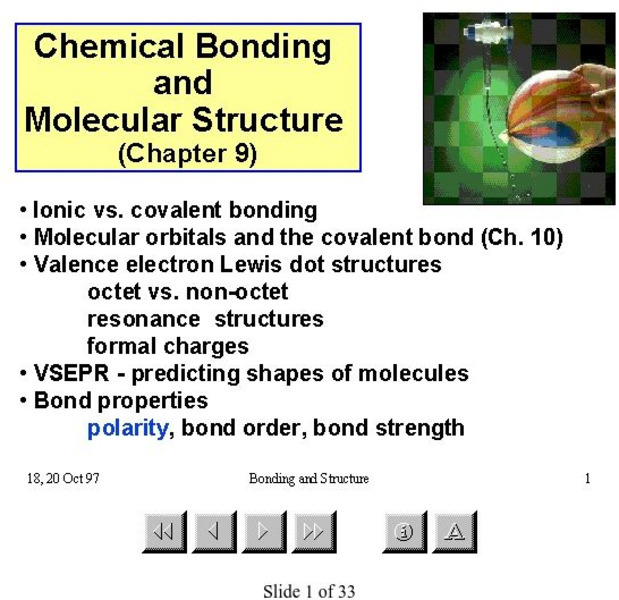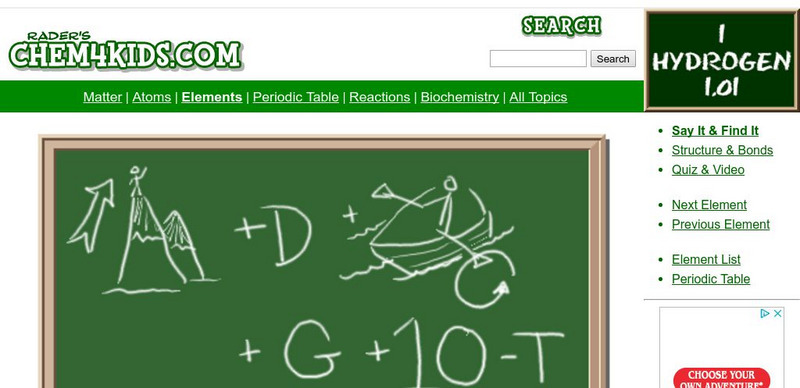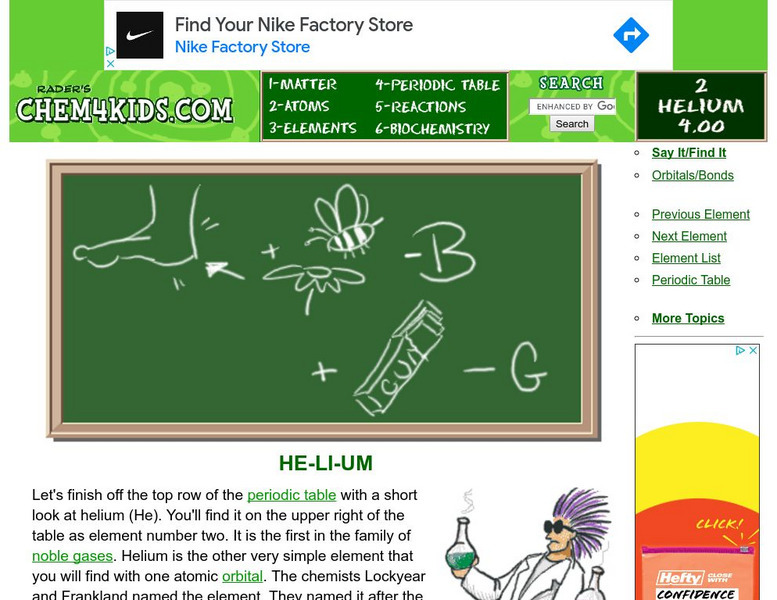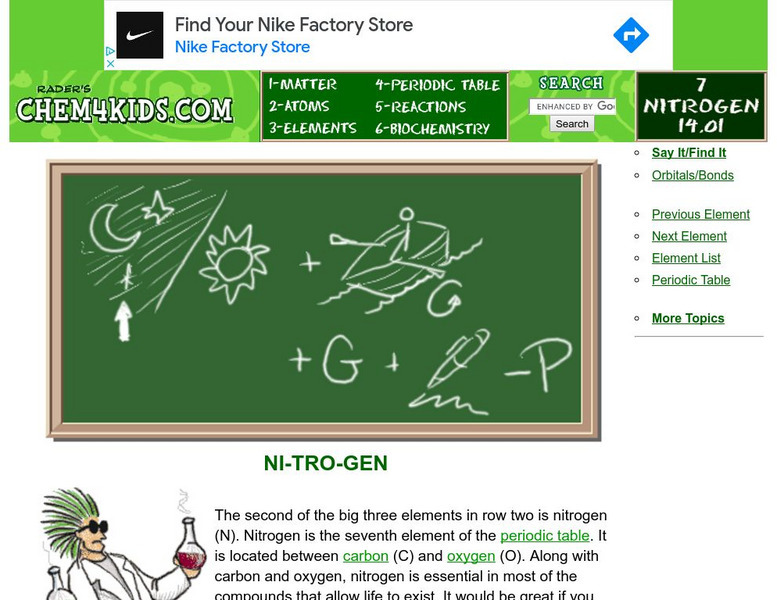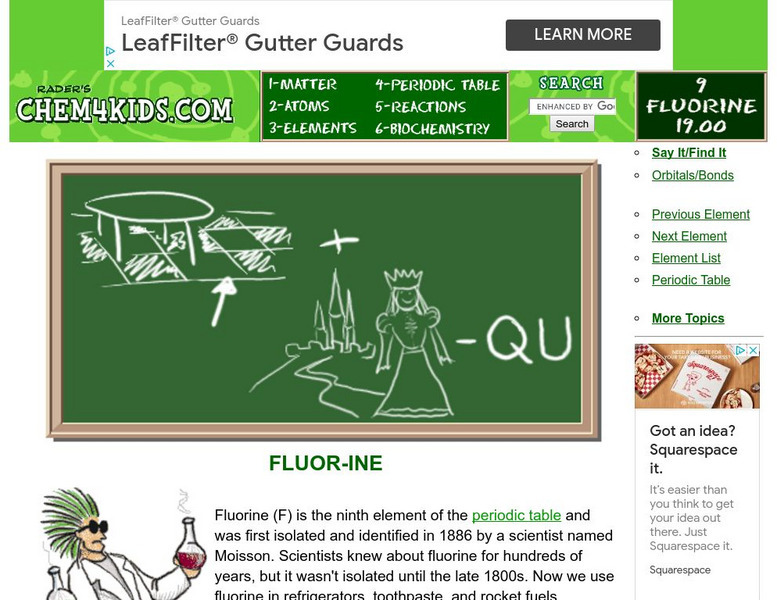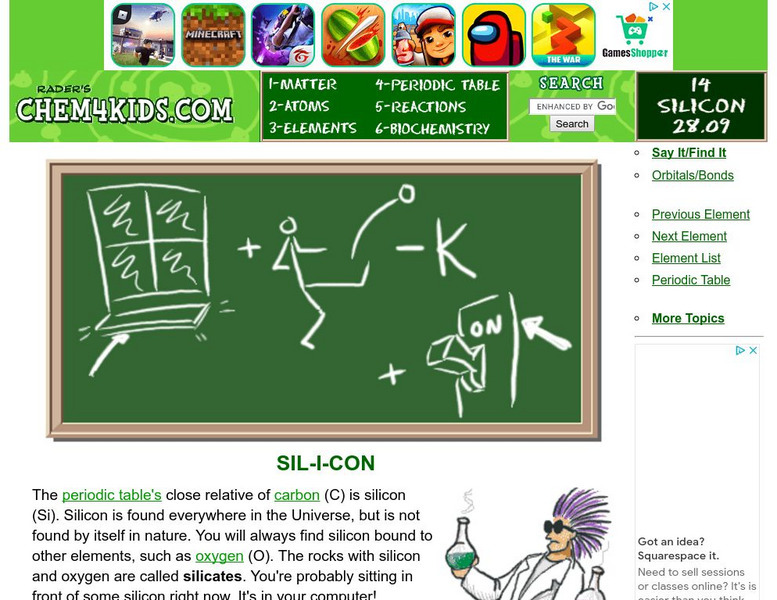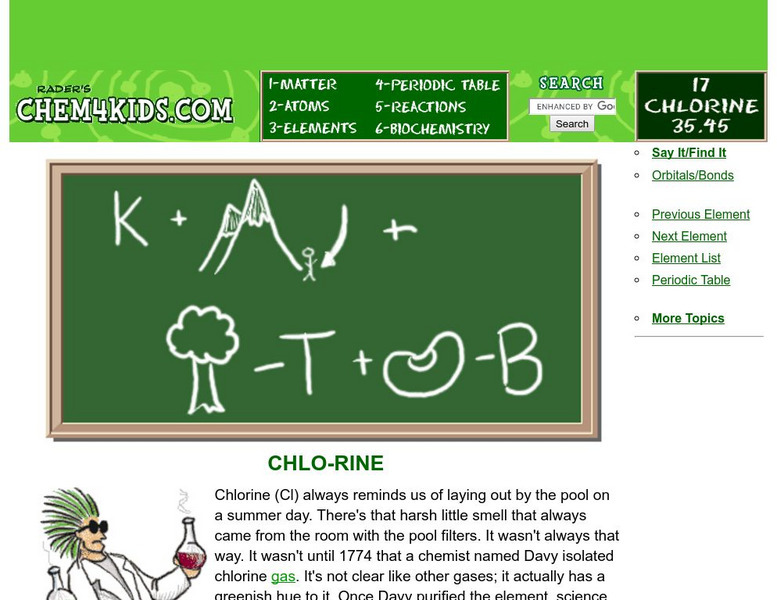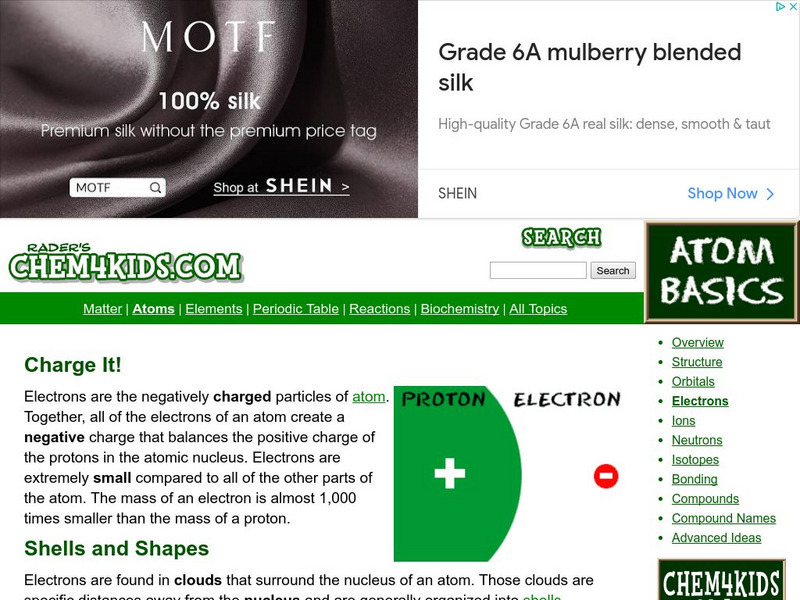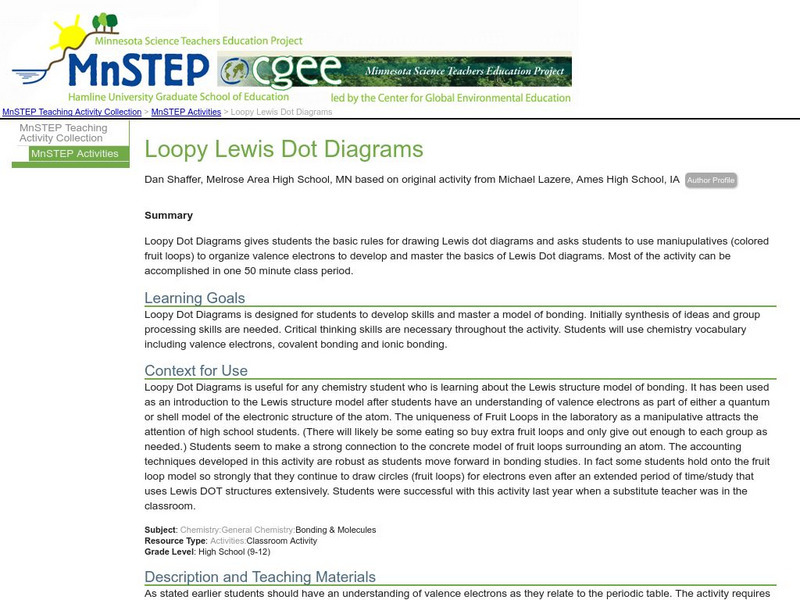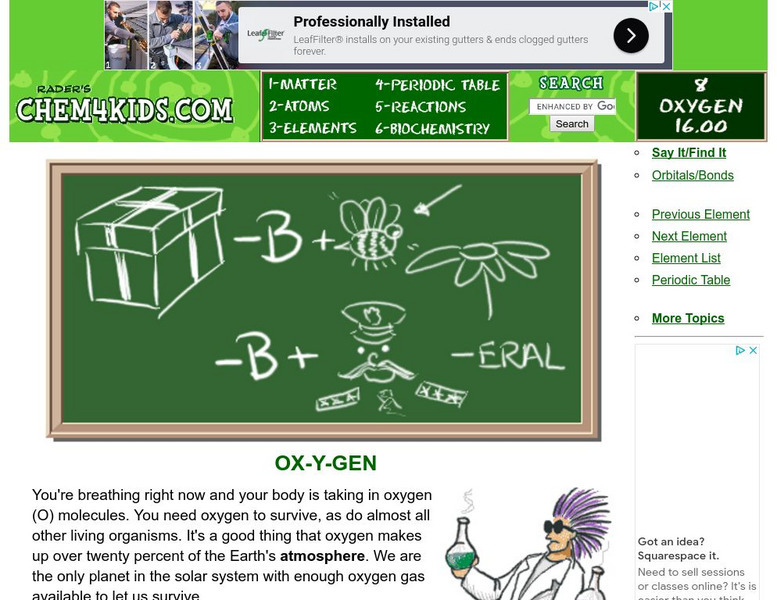Hi, what do you want to do?
CK-12 Foundation
Ck 12: General Chemistry
[Free Registration/Login may be required to access all resource tools.] Students will be introduced to some of the basic concepts of chemistry.
McMaster University
Mc Master University: Molecular Structure
This PowerPoint presentation features 33 slides that explain chemical bonding and molecular shape.
PBS
Pbs Teachers: Why the Towers Fell: The Structure of Metal
Examine what it is that gives metal its special characteristics and how metal behaves under the stress of heat and outside forces. An engaging interactive feature is offered to here to illustrate this concept.
Chem4kids
Chem4 Kids: Magnesium (Mg)
Here you can find some great information about the 12th element in the periodic table, "magnesium." Content focuses on magnesium's electrons, where you can find magnesium in nature and in the home, and how magnesium combines with other...
Chem4kids
Chem4 Kids: Hydrogen
Here you can find out about hydrogen, the first element in the periodic table. Content includes shell information, where to find it in nature, and why it is helpful to us.
Chem4kids
Chem4 Kids: Helium
Here you can find lots of great information about helium. Learn about its electrons, where it exists in nature, and about the element itself!
Chem4kids
Chem4 Kids: Carbon
Click on the left navigation terms for some great information about the 6th element in the periodic table, "carbon." Content focuses on carbon's electrons, where you can find carbon in nature and in the home, and how carbon combines with...
Chem4kids
Chem4 Kids: Nitrogen (N)
Here you can find some great information about the 7th element in the periodic table, "nitrogen." Content focuses on nitrogen's electrons, where you can find nitrogen in nature and in the home, and how nitrogen combines with other elements.
Chem4kids
Chem4 Kids: Fluorine
Here you can find some great information about the 9th element in the periodic table, "fluorine." Content focuses on fluorine's electrons, where you can find fluorine in nature and in the home, and how fluorine combines with other elements.
Chem4kids
Chem4 Kids: Neon (Ne)
Here you can find some great information about the 10th element in the periodic table, "neon." Content focuses on neon's electrons, where you can find neon in nature and in the home, and how neon combines with other elements.
Chem4kids
Chem4 Kids: Sodium (Na)
Here at Chem4Kids you can find some great information about the 11th element in the periodic table, "sodium." Content focuses on sodium's electrons, where you can find sodium in nature and in the home, and how sodium combines with other...
Chem4kids
Chem4 Kids: Silicon (Si)
Here you can find some great information about the 14th element in the periodic table, "silicon." Content focuses on silicon's electrons, where you can find silicon in nature and in the home, and how silicon combines with other elements.
Chem4kids
Chem4 Kids: Sulfur (S)
Here you can find some great information about the 16th element in the periodic table, "sulfur." Content focuses on sulfur's electrons, where you can find sulfur in nature and in the home, and how sulfur combines with other elements.
Chem4kids
Chem4 Kids: Chlorine (Cl)
The 17th element in the periodic table is defined, chlorine. Find out how many electrons chlorine has and where you can find it in nature and in the home.
Chem4kids
Chem4 Kids: Argon (Ar)
Chem4Kids looks at the 18th element in the periodic table, argon. Content focuses on argon's electrons, where you can find argon in nature and in the home, and how argon combines with other elements.
Sophia Learning
Sophia: Electronegativity
Explore the concept of electronegativity and how it trends across the periodic table of elements. The author uses simple, humorous drawings to help with understanding.
Sophia Learning
Sophia: Chemistry: Electronegativity
Created to teach students of the 21st century, SOPHIA is bringing electronegativity straight to your fingertips. Become the commander of your own learning experiences as you take part in this interactive lesson and help make learning...
Chem4kids
Chem4 Kids: Atoms: Electrons
Learn about an electron's negative charge, location, and role in bonding. Website also investigates electrons uses in electricity.
Chem4kids
Chem4 Kids: Lithium
Here at Chem4Kids you can find some great information about the third element in the periodic table, lithium. Content focuses on lithium's electrons, where you can find lithium in nature, and how it bonds with other elements (or with...
CK-12 Foundation
Ck 12: Chemistry for High School
This digital textbook covers core chemistry concepts and includes interactive features, real-world examples, and videos.
Science Education Resource Center at Carleton College
Serc: Loopy Lewis Dot Diagrams
Students will use colored fruit loops to organize valence electrons to develop and master the basics of Lewis Dot diagrams. They will develop processing and critical thinking skills and also master a model of bonding.
Chem4kids
Chem4 Kids: Oxygen (O)
Here you can find some great information about the 8th element in the periodic table, "oxygen." Content focuses on oxygen's electrons, where you can find oxygen in nature and in the home, and how oxygen combines with other elements.
BBC
Bbc: Gcse Bitesize Science: Different Substances
A short quiz over the general topics of atomic structure of different substances and bonding properties. The quiz gives immediate feedback over with explanation for the correct answer choice.






